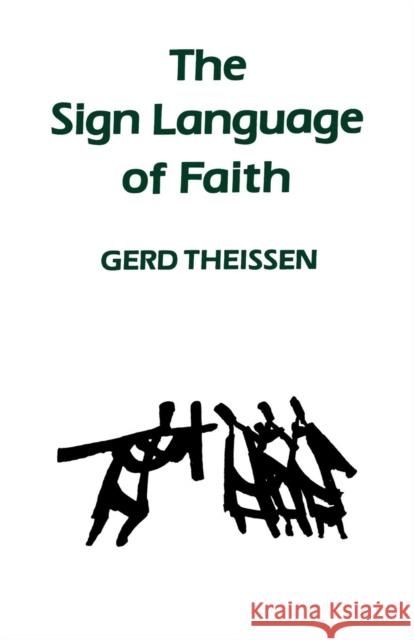The Sign Language of Faith » książka
The Sign Language of Faith
ISBN-13: 9780334025986 / Angielski / Miękka / 2012 / 192 str.
As those who have read his The Shadow of the Galilean and Biblical Faith are aware, Gerd Theissen is not someone whose main concern is the theory and practice of preaching. However, he himself is a fascinating preacher, as was evident in his imaginative collection The Open Door, which Frances Young in Theology described as 'nothing less than gripping'. In this book he engages as it were in self-analysis, an analysis of haw he preaches, in order to offer help to others. A first draft was shown to younger ministers, women and men, for their critical comments, and the book derives from lectures which gave rise to lively discussion. Professor Theissen's illuminating comments are grouped round a variety of focal points. The first chapter discusses the biblical world and how that can be approached; then comes the text, and the new possibilities offered by the 'open' text. The third chapter examines how preaching can talk about God and the fourth looks at the existential dimension of preaching. A fifth chapter on preaching as communication is followed by five sample sermons. Preachers will learn a great deal from this book - but so too will their congregations, and anyone interested in the communication of Christianity in the modern world. Few theologians are richer in creative ideas than Gerd Theissen, and they are here in abundance.
As those who have read his The Shadow of the Galilean and Biblical Faith are aware, Gerd Theissen is not someone whose main concern is the theory and practice of preaching. However, he himself is a fascinating preacher, as was evident in his imaginative collection The Open Door, which Frances Young in Theology described as nothing less than gripping. In this book he engages as it were in self-analysis, an analysis of haw he preaches, in order to offer help to others. A first draft was shown to younger ministers, women and men, for their critical comments, and the book derives from lectures which gave rise to lively discussion.Professor Theissens illuminating comments are grouped round a variety of focal points. The first chapter discusses the biblical world and how that can be approached; then comes the text, and the new possibilities offered by the open text. The third chapter examines how preaching can talk about God and the fourth looks at the existential dimension of preaching. A fifth chapter on preaching as communication is followed by five sample sermons.Preachers will learn a great deal from this book - but so too will their congregations, and anyone interested in the communication of Christianity in the modern world. Few theologians are richer in creative ideas than Gerd Theissen, and they are here in abundance.











